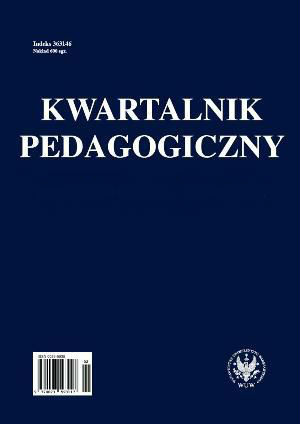TOMISTYCZNA MYŚL PEDAGOGICZNA W POLSCE WOBEC IDEI PERSONALIZMU
THOMISTIC NOTION IN PEDAGOGY IN POLAND IN THE VIEW OF THE IDEA OF PERSONALISM
Author(s): Jarosław HorowskiSubject(s): Psychology
Published by: Wydawnictwa Uniwersytetu Warszawskiego
Keywords: thomistic pedagogy; personalism; person; virtue; Woroniecki; Mounier; Gogacz; Górski; Wojtyła
Summary/Abstract: At present personalism is one of the most popular notions in philosophy and this results from the fact that it focuses on human; both with the respect to the internal life and the relations people establish. For this reason personalism considerably influences ethics, psychology, pedagogy and theology. For pedagogy, in the domain of personalism it is of vital importance to raise the esteem of personal freedom and subjectivity. Concept of Christianity attaches great importance to the idea of personalism. And in result the concept of Christianity and personalism are often unified. This perception is not always justified. Theological, ethical or pedagogical concepts which have been developing for centuries within Christianity, have been based on Thomistic philosophy whose foundations differ from personalism. Is suffices to recall the fact that Thomism is built upon the existence analysis and personalism is in line with the philosophy of subject. The hereby article presents the specificity of each concept and what consequence they bear for the domain of pedagogy. The author of the article attempts to present the advantages and the disadvantages they have; considering the fact that each concept presents its own value and at the same time remains incomplete and fragmentary. Subsequently the author presents the phases of personalism ideas reception into Thomistic pedagogy in Poland. Initially personalism was criticised as the idea which leads subjectivism. Over time the concept of Thomistic personalism was formed on the grounds of Tomism, and this was based on metaphysical concept of the person. It increased the esteem of human dignity however it was still treated as the object and not the subject. This difficulty then was resolved by ethical personalism which combines the objective character of reality with the subjective cognitive profile. The article demonstrates how this dialogue of two pedagogical concepts may facilitate a better cognition of the upbringing reality as such.
Journal: Kwartalnik Pedagogiczny
- Issue Year: 224/2011
- Issue No: 2
- Page Range: 29-90
- Page Count: 32
- Language: Polish
- Content File-PDF

